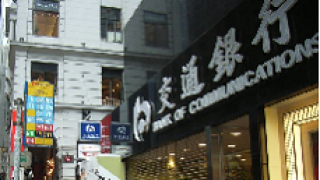ANZ
-
Eurofima, Inter-American Development Bank and International Finance Corporation tapped their 10 year Kangaroo lines this week, raising a total A$180m ($136.8m), as Asian investors looked for yield from the Aussie market.
-
Bank of Communications Financial Leasing Co snagged $1.5bn from a dual-tranche offering on Tuesday, as it opted for a slightly different structure to its past transactions.
-
Bank of Communications Financial Leasing Co launched its second dual tranche dollar bond of 2016 Tuesday, following a global roadshow last week.
-
Australia and New Zealand Bank has mandated leads for a European roadshow with a view to issuing a euro denominated covered bond or a senior unsecured benchmark, or both. DG Hyp has mandated leads for a long eight year Pfandbrief.
-
ANZ has made some 30 people redundant across its institutional banking divisions in New York, London and Asia.
-
ICBC Sydney issued a Rmb1.2bn ($177m) dim sum bond on Thursday, tapping investor interest for short term liquidity with a two year offering.
-
MMI International has picked four banks to arrange its new 144A/Reg S deal, and is set to meet investors from next week.
-
ICBC Sydney has returned to the dim sum bond market with the launch of a new two year bond.
-
Syndication is under way for a A$500m ($380m) five year facility to support Philippine consumer food and beverage company Universal Robina Corp’s acquisition of Snack Brands Australia.
-
China Great Wall International Holdings III and Bank of Communications Financial Leasing Co are preparing to hit the road for their respective senior unsecured dollar offerings.
-
Export-Import Bank of Korea (Kexim) executed yet another blockbuster $2.5bn trade on Thursday just a few months after printing a deal of the same size. Korea's first four-tranche trade drew a strong response from the market, allowing the policy bank to price inside its existing curve.
-
A $3.5bn dual-tranche borrowing to back Tencent Holdings' acquisition of a stake in mobile gaming company Supercell, has been allocated. Three Chinese mandated lead arrangers and bookrunners held on to 60% of the loan at the end of general syndication.










